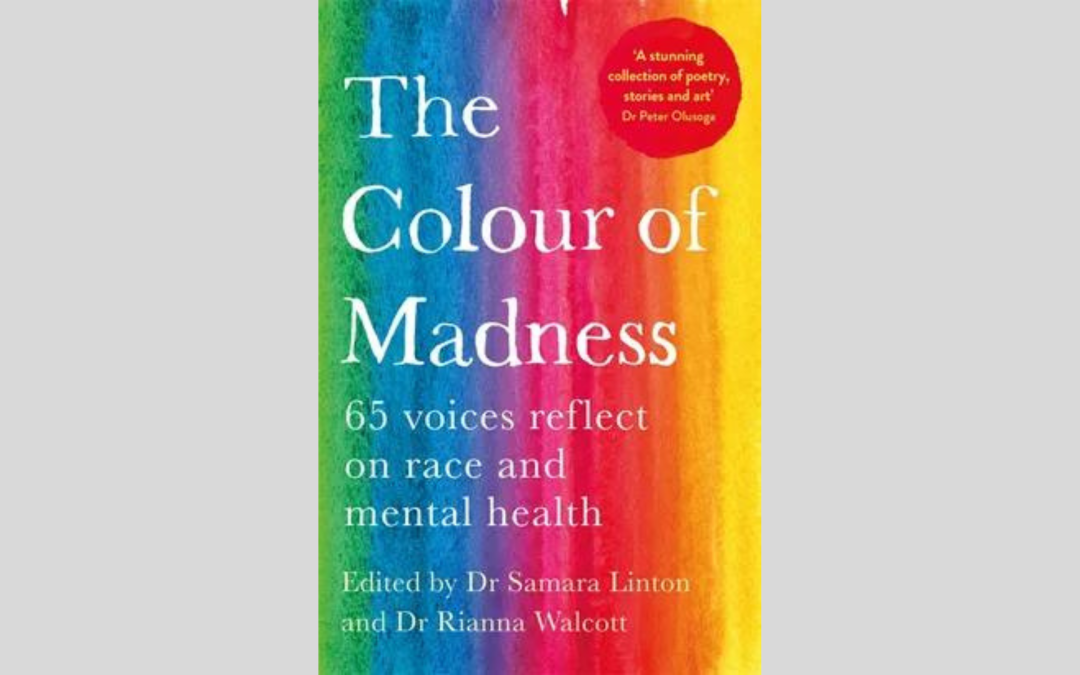The Colour of Madness is a revolutionary collection of work edited by Dr Rianna Walcott and Dr Samara Linton. The third edition (paperback) was published in May 2024. I was fortunate enough to come across this book a few months ago have chosen to share it to round off Mental Health Awareness Week. I’ve been deeply moved and inspired by the stories and insights collected here, which highlight a range of perspectives relevant to our collaborative effort to improve mental health for all in the performing arts.
Through a collection of stories, essays, poetry, short fiction and artwork shared by 65 voices, many of whom work in healthcare and/or creative professions themselves, the Colour of Madness provides an important and much-needed space for the voices of People of Colour, and their experiences with mental health to be heard.
As many of the contributors talk about very challenging experiences in their lives, I would encourage you to look at the content warning, especially if reading about sensitive content may be upsetting or triggering.
This is a collection that will undoubtedly resonate with those who have shared similar experiences, as well as being an important read for individuals and mental health professionals looking to further understand and combat systemic injustice.
As stated within the first pages of this anthology, The Colour of Madness is:
For those past and present who were not able to tell their stories. For those who told their stories but were not heard. For those who are steeling themselves waiting for their moment to speak.
It felt all the more important to share and disseminate this book following the key findings within Unseen Unheard, a collaborative report and podcast between Black Lives in Music and Attitude is Everything, as well as the insights provided by the Musicians Census Insight Reports. Both reports convey clearly how inequality and discrimination create barriers to sustainable creative careers and adversely impact health in our community.
A collaborative approach is vital in tackling inequality. BAPAM brings clinical expertise to a consortium of organisations committed to providing accessible health support for all in the performing arts. We are grateful for essential support from our funders and partners which enables us to deliver these specialist services.
As a reminder of how you can access support through BAPAM, provided with Music Minds Matter for musicians, with Equity for creative practitioners and with Dance Professionals Fund for dancers and choreographers, please follow this link: Mental Health Support at BAPAM
Likewise, here you can find out more about BAPAM’s healthy practice and mental health workshops

